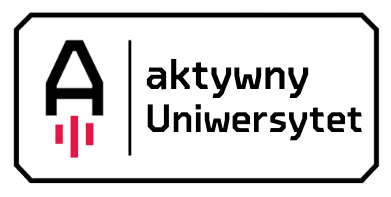Regulations
Basic information about your studies
1. The superior of all students at the University is the Rector.
2. The superior of students in the institute/department is the director/ head of the institute/ department.
3. The student receives a student ID card and access to an individual, virtual account that allows you to observe the course and results of studies. The virtual account is part of the virtual study management platform
4. The academic year starts on 1 October and lasts until 30 September and is divided into two semesters. Each semester lasts 15 weeks. Usually the first semester finishes at the end of January, while the second semester starts in mid-February and lasts till mid-June.
5. Exam periods start immediately after a semester is over. However, the winter re-take exam session starts after the regular winter exam period (usually in mid-February), while the summer re-take exam session is held in September.
6. Summer holidays last at least 4 weeks. In practice, they start in mid-July and finish at the end of August (this does not concern internships).
7. The Rector may establish holidays during the academic year (called ‘The Rector’s Days’ or ‘Rector’s Hours’).
8. Lectures at the University are open to everyone.
9. The student may apply to the Rector for permission to follow the “Individual Study Organization” (The student, in consultation with their advisor, drafts an individual timetable and exam requirements).
10. Studies at the University on every faculty, level and profile are conducted to the Study Programme.
11. The student must be actively involved in classes provided by the Study programme.
12. The graduation period is the semester.
13. To get a credit, the student must pass tests, colloquia and other forms of assessment (e.g. graded homework, in-class presentations, etc.). Evaluation may take the form of a final written or oral exam.
14. The student is obliged to complete the semester of study at the latest by the end of the session at the latest after the semester for which he/she was entered.
15. The conditions for completing the semester are determined by the “Study Programme”.
16. The student who has completed the classes obtains the number of ECTS credits assigned to them and evaluation.
17. Each level of study has a certain number of ECTS credits that the student must obtain during the whole study period.
18. The student has the right to take the re-take exam once with any errithed classes.
19. The student may apply to the Rector, after obtaining the approval of the teacher, for permission to repeat the whole semester or a course.
20. The student who repeats the semester is not obliged to count the classes for which she/he has obtained a number of ECTS credits already defined in the Study Programme.
21. The students can take part in international student exchanges in the framework of programmes conducted in the University.
Rules and Regulations (downloadable files)





